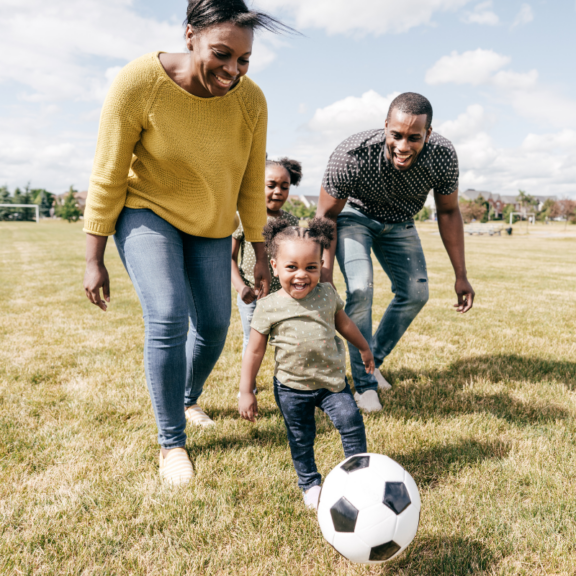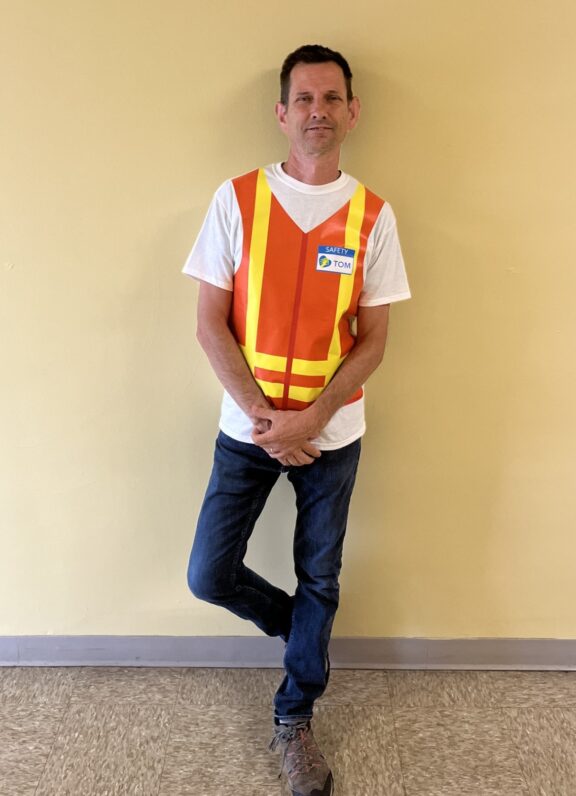
Summer Safety Tips
Keeping Youth Safe and Guardians Informed
June is National Safety Month, so NewPath compiled these top safety tips to help protect the youth in your care all summer long.
Why Stay Current on Safety Practices?
Parents and guardians would do anything to protect the youth in their care. One of the best ways to prevent something from happening is to stay up-to-date on safety practices for any situations or activities your family participates in year-round. NewPath Child & Family Solutions created this safety guide with the help of our Safety Officer, Tom Harsha, to help ensure your family has a safe and fun-filled summer!
Playground Safety
Playground Safety Tips for Parents & Guardians:
- Ensure the equipment does not contain cracks, bends, warps, rust, or breakage
- Be aware of tripping and slipping hazards such as tree roots, rocks, pavement, and more
- Check wooden slides and surfaces for splintering wood, and the temperatures of metal slides and equipment
- Examine any tires for pooling water and insect nests
- Avoid thorny plants or bushy areas that may hide plants with skin irritants, trash, broken glass, or more
- Monitor sand areas for any uncovered animal feces, mushrooms, poisonous plants, stinging insects, or more
- Look for areas with standing water that could be a drowning hazard
- Confirm that there is sufficient energy-absorbing material under playground equipment in case of a fall
- Test all latches on fences to ensure they lock properly before relying on them for safety
- Above all, be present by keeping an active and constant eye on the child or children in your care
Playground Safety Tips for Youth:
- Use all playground equipment properly (i.e. moving feet-first down slides, sitting on swings, not climbing over railings)
- When jumping, land with your knees slightly bent to lessen the impact and avoid injury
- “Look before you leap” to avoid landing on or injuring other children
- Avoid pushing, shoving, or crowding around other children on the playground
- Know that young children play differently than older children, stick to age-appropriate equipment
Bicycle Safety
Bicycle Safety Tips for Parents & Guardians:
- Fluorescent or bright-colored helmets and clothes will help kids be visible on the road
- Avoid dark clothes, especially during early dusk and twilight hours, and use reflective tape or clothing
- Pant legs shouldn’t be too loose or flared to prevent getting caught up in the chain while riding
- If your child wears a backpack while riding, make sure the load is light and the straps are tied up, and can’t get tangled in the spokes of the wheels
- Choose shoes that grip the bike’s pedals. Cleats, shoes with heels, flip-flops, or bare feet should be avoided
- The helmet should have a CPSC or Snell sticker inside, indicating it meets standards set by trusted safety groups
- Make sure the helmet fits correctly and can be adjusted, is well-ventilated, and was manufactured after 2000
- Helmet straps should be securely fastened without any additional hats or headwear underneath
- Replace any helmets that have experienced a hard blow as they lose their ability to absorb shock after taking serious hits
Bicycle Safety Tips for Youth:
- Stop at all stop signs, obey traffic lights, yield to pedestrians, and be especially careful at intersections
- Always ride in the same direction as cars, and never ride against traffic
- Kids younger than 10 years old should ride on the sidewalk and older kids should use bike lanes or designated bike routes
- Watch traffic closely and always stop and check for traffic in both directions when leaving a driveway, an alley, or a curb
- Don’t ride too close to parked cars — doors can open suddenly
- When riding in a group, always ride single file on the street
- Never ride at dusk or in the dark
- When passing other bikers or people on the street, always pass to their left and call out, “On your left!”
- Never share the seat with a friend or ride on the handlebars — only one person should be on a bike at a time
- Never text, use a cell phone, or wear headphones while riding
Pool & Water Safety
Pool & Water Safety Tips for Parents & Guardians:
- Children, inexperienced swimmers, and all boaters should wear U.S. Coast Guard-approved life jackets
- Provide close and constant attention to children you are supervising in or near water
- Designate a water watcher to ensure constant safety, swim lessons do not replace the need for a water watcher
- The water watcher should be within an arm’s length of young children and beginner swimmers
- Even if a lifeguard is on duty, a water watcher also should watch kids
- Supervise others sober and without distractions, avoid reading or talking on or using a cell phone
- Schedule swimming lessons for youth at least 1 year old
- Every parent should know how and when to do CPR in case of a water emergency
- All pools (including above-ground pools) and hot tubs should have a fence around them with a self-closing, locked gate
- If you can’t fence around a spa or hot tub, be sure they are securely covered when you aren’t using them
- Add even more protection with door and window alarms that chime when opened
- Do not use mermaid tails or fins in the pool, as they can make swimming harder and lead to drowning
- Floaties do not prevent drowning — youth still need the same supervision as those without them
- Set a good example of how to use a pool safely
Pool & Water Safety Tips for Youth:
- Do not enter head first unless in a pool that has a safe diving area
- Only swim when supervised by a water watcher
- Stay away from drains and other openings that cause suction
- Do not run around the pool
- No pushing or dunking in the pool
- Never dive from the side of the pool or a diving board unless a pool is at least 9 feet deep (look for postings)
- Get out of the pool right away in bad weather, especially if there’s lightning
- Listen to all lifeguards, pool staff, and adults
Situational Awareness
Situational Awareness Tips for Parents & Guardians:
- Trust your gut — if something doesn’t seem right, it’s probably not
- Try not to get tunnel vision and only focus on what is immediately in front of you
- Know who is around you and what they are doing
- Don’t be afraid to make eye contact with people — you are less likely to be targeted if you are observing your surroundings and making eye contact
- Think about the points in your normal routine when you could be an easier target
- Find a system that works for you and keeps the youth in your care safe
- Know where exits are in case of emergency
- Identify and avoid areas in parking lots where someone could avoid being seen until they are right next to you
- Don’t become complacent — stay vigilant

Meet Tom Harsha
NewPath Safety Officer
“It takes less time to do a thing right, than it does to explain why you did it wrong.” – Henry Wadsworth Longfellow
Safety is everyone’s responsibility – Be safe! Do your part to create a safe work culture at NewPath. My goal is for everyone to feel safe every day when on the job or in our services.
Contact Us
Contact
"*" indicates required fields
